Briefing on the 22nd meeting of the Adaptation Fund Board
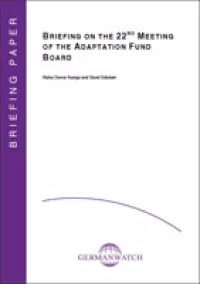
The 22nd meeting of the Adaptation Fund Board took place in Bonn from October 31 - November 1, 2013. Please find below the Briefing Paper.

The 22nd meeting of the Adaptation Fund Board took place in Bonn from October 31 - November 1, 2013. Please find below the Briefing Paper.
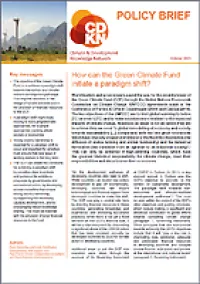
World leaders and governments paved the way for the establishment of the Green Climate Fund (GCF) through the United Nations Framework Convention on Climate Change (UNFCCC) agreements made at the Conference of Parties (COPs) in Copenhagen (2009) and Cancún (2010). The objective of the Green Climate Fund is to achieve a paradigm shift towards low-carbon and climateresilient development pathways. This requires ambition, in the design of funded activities and in the provision of financial resources to the GCF.
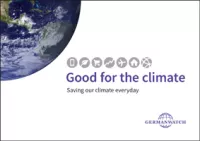
The handy leaflet offers useful tips and tricks for changing your lifestyle to a more climate friendly one. It provides ideas for different areas: mobility, living, consumption, nutrition, investment and last but not least political involvement.
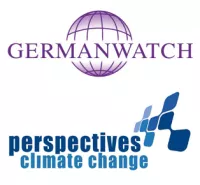
For many developing countries ensuring food security remains a key development challenge, often aggravated by climate change impacts. However, a number of governments that set-up national climate change strategies with the intention to improve conditions in the agricultural sector often find it difficult to address climate change mitigation, adaptation and food security elements in a synergy-oriented manner. The question arises what kind of institutional set-up would be required to better address this challenge?
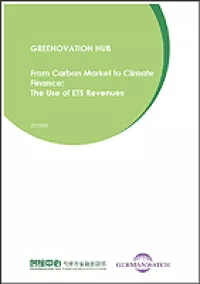
This paper pursues the question of whether revenues from Chinese emission trading scheme (ETS) pilots, and a future national carbon market, should be used for national climate action in China and what topics should be addressed. Firstly, it will discuss why carbon market revenues should be used for climate finance and how this may be accomplished in theory. The paper then describes the experience of other countries, particularly in the EU, in using ETS revenues for climate actions. Finally recommendations are provided for the Chinese pilot ETS.